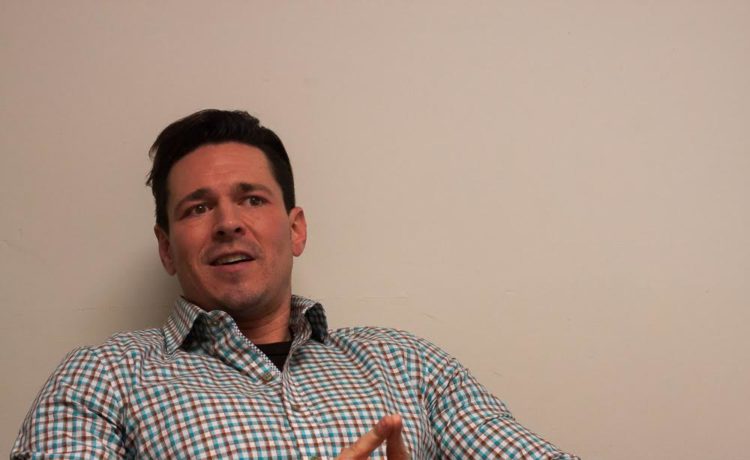“I ended up at Ulster more because of a qualitative and intuitive feeling. Things just kind of felt right. It felt like I fit here. So, I took the job. When I moved here, I wasn’t happy to be in New York. But, at this point, I wouldn’t live anywhere else. I love it here. Unless I could enjoy the same kind of opportunities and the same kind of students, I wouldn’t want to teach anywhere else either. What I’ve really learned about teaching at a community college is that you’ve got a classroom full of people from all different walks, from all different races, religions, cultures, creeds, etc. So, there’s a challenge in teaching, where you have to make information palatable for everybody. You’ve got to get those who are less prepared involved and learning, while not boring the others who are more prepared — which can be its own challenge. But it’s one that I love, and I love the diversity and the variability here and the freedom to teach what I want when I want.
My style of teaching is motivated by looking outside the classroom to what garners people’s interest; and so, when I’m deciding how I want to present a thing, it may seem random, it may seem colorful, it may seem somewhat showy and theatrical, but there’s a method to all of that madness. I try to look outside to what people flock to and to what people remember about for the rest of their lives, and then try to bring that into the classroom. I aim to make you feel challenged and uncomfortable with what you thought because I don’t think you learn unless you are uncomfortable. I don’t aim to make you agree with me or to indoctrinate opinions into a classroom, but I do aim to challenge pre-existing notions with reputable data and scholarly research because I want to engender that idea that college is about teaching you how to think. It’s about teaching you how to defend your own opinion. So, what I try to bring into the classroom, is enough shock and enough discomfort to keep people’s attention, and enough relevance and enough entertainment to stay that attention in a way that makes them talk about it outside of class. I want you to leave my class and say, ‘Can you believe what Lynchard did today?’, because every time they do, they are studying my material, and they are remembering what we talked about. That’s a form of study.
I also believe the classroom is an opportunity for you to talk about things that you otherwise can’t talk about. I want to create an environment where there’s a level of trust and respect between the students and myself. If somebody wants to talk about something that they otherwise wouldn’t feel comfortable talking about, we can discuss that thing. We can dive deep into it and, in a respectful way, try to figure out what it means. My teaching style is specifically garnered to get attention, and, so, yeah, it’s necessary from time to time for me to brush up on current literature or bring in instantly-current research and complex methodology that’s on the cusp of cutting edge and being developed right now; but there’s also a lot of foundational things that have to be established – things I already know well. That said, I rely a lot on that foundational knowledge in the classroom, and then, outside of current research, what I study outside the classroom is stand-up comedy. I study delivery in communication, and how a comic delivers a message. Things aren’t just funny by their content. They are funny by their delivery. A lot of that is how I prepare for a class because I think to myself, ‘People don’t go to see a concert, or a movie, or a show, or a stand-up comic with the intent to remember and discuss it after the fact. It’s organic to that process. To what extent can I bring that to the classroom? Make them talk about it after the fact, keep them engaged, because they can’t help themselves. I want it to be so organic that they can’t not pay attention to it, they can’t not be affected by it.’ So, a lot of that extreme, and a lot of that theatricality, and a lot of that showmanship of delivery and shock factor and standing on desks and singing at random — all of those kinds of things are done with the purpose of making it difficult for them to ignore me.
So, yes, I kind of ended up here by chance, but I’ve turned down other colleges to stay here since I love this atmosphere and I love connecting to all kinds of students. I’ve come to think that I belong more at a community college than I do anywhere else. And if I had to do it all over again, I would have designed it this way.”















Nick Lynchard is a class act. Smart, compassionate, and very dedicated and gard working. We are lucky to have him.in our community and guiding our next generation.